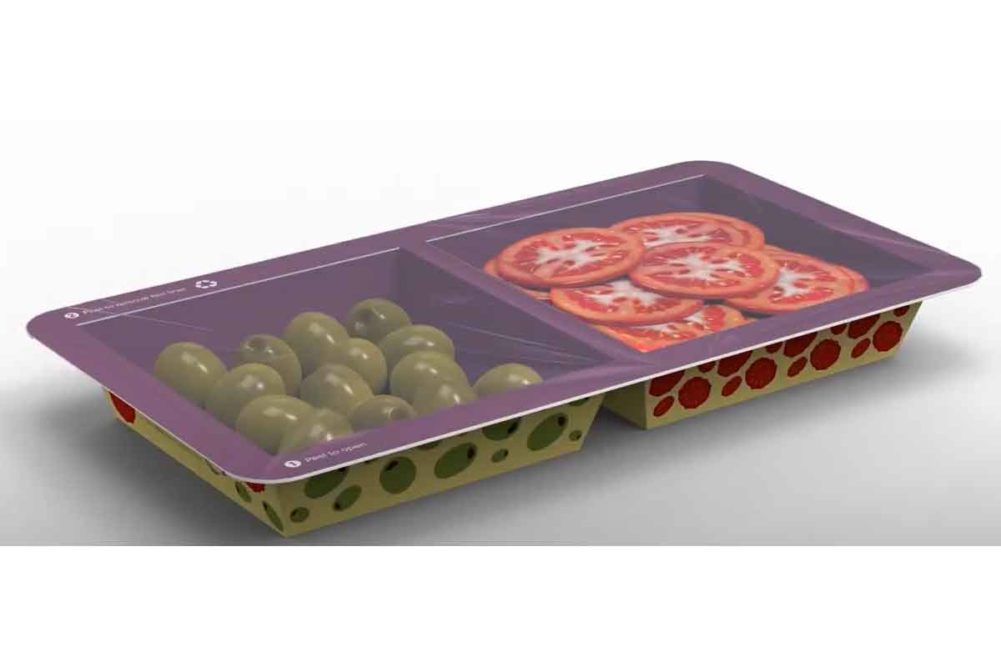TAUNTON, MASS. – Harpak-ULMA announced a new packaging technology as part of its initiative to promote green packaging alternatives throughout the food industry. The launch addresses consumer demand to replace difficult to recover plastics with more environmentally friendly and convenient, single-use packaging.
Jerry Rundle, vice president of sales at Harpak-ULMA, said the current industry supply chain can impair the implementation of new methods and materials.
“Entrenched producers are using hundreds of millions of plastic trays each year,” Rundle said. “They’re embedded in long-term supplier contracts and vested in the associated packaging equipment. To say that changing direction is difficult is a bit of an understatement – it’s like turning the proverbial aircraft carrier. There’s just too much industry resistance. On the other hand, new market entrants don’t have those constraints. For example, new plant-based meat companies are adopting sustainable paper-based tray packaging materials and methods out of the gate because they’re not embedded in the status quo.”
In February of 2020, Rundle gained experience overcoming industry impediments while promoting G. Mondini’s line of PaperSeal trays as an alternative to plastics, a concept resulting from a collaboration between G. Mondini and Graphic Packaging International. Those products launched in Europe May 2019.
“Graphic Packaging has more than 10 line placements already producing commercial products for multiple customers throughout Europe and Asia,” said David Devenport, vice president, consumer products and convenience for EMEA at Graphic Packaging International. “This has been achieved in less than 12 months from launch and the momentum is building.”
The company produces trays with fiber sources from sustainably managed forests. Each tray consists of 80% to 90% paperboard and 10% to 20% film. This ratio significantly reduces plastic use and limits base tray waste to 2%. Also, the tray film liner is easily separated from the paperboard after use, allowing for the paperboard portion to be recycled. Depending on application, the tray provides up to 28 days of shelf life and is suitable for fresh or processed meat, as well as cheese, ready-made products, frozen foods, snacks, salad and fruit.
“PaperSeal’s design works easily in existing denesters and conveyors – we know, we’ve tested it,” said Carlo Bergonzi, Harpak-ULMA’s product manager for Tray Seal. “Put a new set of tooling in your Tray sealer and you’re ready to go. It’s extremely adaptable to your existing equipment and no more expensive to produce than plastic trays. Also, PaperSeal trays are formed with pre-cut film - there’s no flop or film hanging over the tray – it’s a very clean look that also reduces film waste.”


